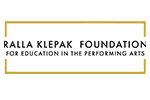In Muslim tradition, Ramadan (Ramzan in India) is a time of heightened commitment to piety and purification through special observances such as fasting, seeking spiritual fulfilment and forgiveness. The month, in which the Qur’an-e Sharif was revealed to Prophet Muhammad (peace be upon him and his family) reinforces the virtues of patience and self-discipline, as well as offers an opportunity to express our gratitude by sharing our good fortune of time, knowledge and material resources with society at large.
The gesture of giving is aptly remarked on by the Sufi poet Hafiz:
“Even after all this time, the sun never says to the earth ‘You owe Me.’
Look what happens with a love like that, it lights the whole sky.”

The sumptuous meal at Eid al Fitr
Eid ul-Fitr is celebrated on the first day of the month of Shawwal, which follows the month of Ramadan. It is an Arabic term which literally means the ‘festival of breaking (the fast)’ and is an occasion of peace, happiness, joy and festivity. The night before Eid is called Chaand Raat which means ‘Night of the New Moon.’ In the USA, just like in India, we as a family visit shopping malls, salons and bazaars like Devon to buy new clothes, gifts and sweets in preparation for the festivities of Eid the next morning. My wife and daughters apply the traditional henna (mehndi) on their hands and feet, often the night before or earlier. On the day of Eid, our family wakes up at dawn to don our traditional outfits of Shalwar Kameez and Sherwanis with Nehru jackets and head out to offer special congregational prayers. After prayers, we, like many Indian Americans, Muslims and non-Muslims alike, visit friends and families to offer our Eid-Mubarak, share tender moments of joy and happiness and ask for blessings from our elders, while delighting in traditional delicacies like Sevaiyyan, Sheer Khurma, Samosas and Biryani. When we were kids, we used to look to our parents and grandparents for special gifts (Eidi) followed by the latest Bollywood blockbuster in theaters. Now, as a parent it is my turn to delight in the special pleasure of distributing eidi to my children, as well as younger family members of relatives and friends accompanied by choicest blessings for their successful, long and healthy life. Our evenings on Eid are typically spent hosting friends and family at home to cap the day. In many communities around the world, Eid celebrations may last for up to 3 days.
On the occasion of Eid-al Fitr, the Indian American Heritage Museum wishes you and your family a joyous and heartfelt Eid Mubarak!

Farida and Sara Bhaidani in their new Eid outfits












